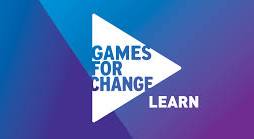Dive Brief:
- Several Milwaukee leaders are joining efforts to secure state and private funding for science of reading instruction training for educators across the city.
- The Milwaukee Reading Coalition was established to address the historically low reading rates among students. Nearly three-fourths of Milwaukee's 4th graders scored below basic in reading compared to 47% of students in urban districts nationwide, according to data from the 2024 National Assessment of Educational Progress.
- “We’re focusing on the teacher training, because that's where a significant gap seems to be,” said Milwaukee Mayor Cavalier Johnson, who is part of the coalition's leadership committee. “We're working to make sure that teachers have all the tools necessary at their disposal to make sure that kids are able to read.”
Dive Insight:
“There's power in collaborative initiatives that move forward to solve problems that we see in our communities,” said National Council of Teachers of English President Tonya Perry, adding that, unlike most initiatives that are either teacher-led or community-led, the Milwaukee Reading Coalition integrates people from both groups.
The Milwaukee Reading Coalition is co-chaired by Howard Fuller, former superintendent of Milwaukee Public Schools; JoAnne Anton, president and CEO of Herb Kohl Philanthropies; and Mark Sain, a former Milwaukee Public Schools board member. There is also a leadership committee that includes several partners alongside Johnson across the private, public and charter education sectors.
Johnson said he has been leveraging his power as mayor to convene these diverse leaders.
“We brought all of these folks who work in the education space together for the first time and said, ‘Hey, we're not having fights about who does this or that better, let's just work on the central goal, which is to improve reading for all kids,'” Johnson said.
The primary goal of the coalition is to ensure that every Milwaukee student can read and that teachers have access to training that will help set students up for success.
According to a statement to K-12 Dive from the coalition, the group’s goals and metrics will depend on the amount of funding secured.
While the coalition is working toward a multi-year funding strategy, Fuller said via email that the total funding target hasn’t been set yet.
He noted that the Wisconsin Department of Public Instruction received $37.1 million in one-time funding as part of a literacy grant for professional development and curriculum reimbursement in the recently signed state budget.
Fuller stated the coalition has helped draft a bill that would delegate whatever portion of funds are meant for professional development in Milwaukee to the future Milwaukee Reading Commission exclusively.
The statement from the coalition also noted that there are approximately 1,900 professionals in the city, including classroom teachers, special education teachers and principals, who the coalition aims to support through training in reading instruction.
Milwaukee Public Schools teachers currently have an allotment for training, but Johnson said those days are spread out over the school year, which means educators aren't entering the school year fully prepared. If the coalition can promptly secure the state and private funds, the goal is to administer professional development training as early as the 2025-26 school year.
For teacher training to be fully effective, however, Perry noted that it is important to have follow-up sessions where educators can reflect on how the strategies they implemented are working. She said that good professional development is ongoing, relatable and should also focus on helping students beyond the classroom.
“A good teacher training program will always ask the teacher to consider the home literacy of the child and how families can support them,” said Perry. “We have to try to find ways to complement what we're doing in school with outside of school to really make that kind of impact we want.”













